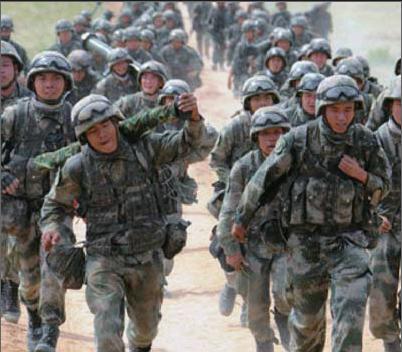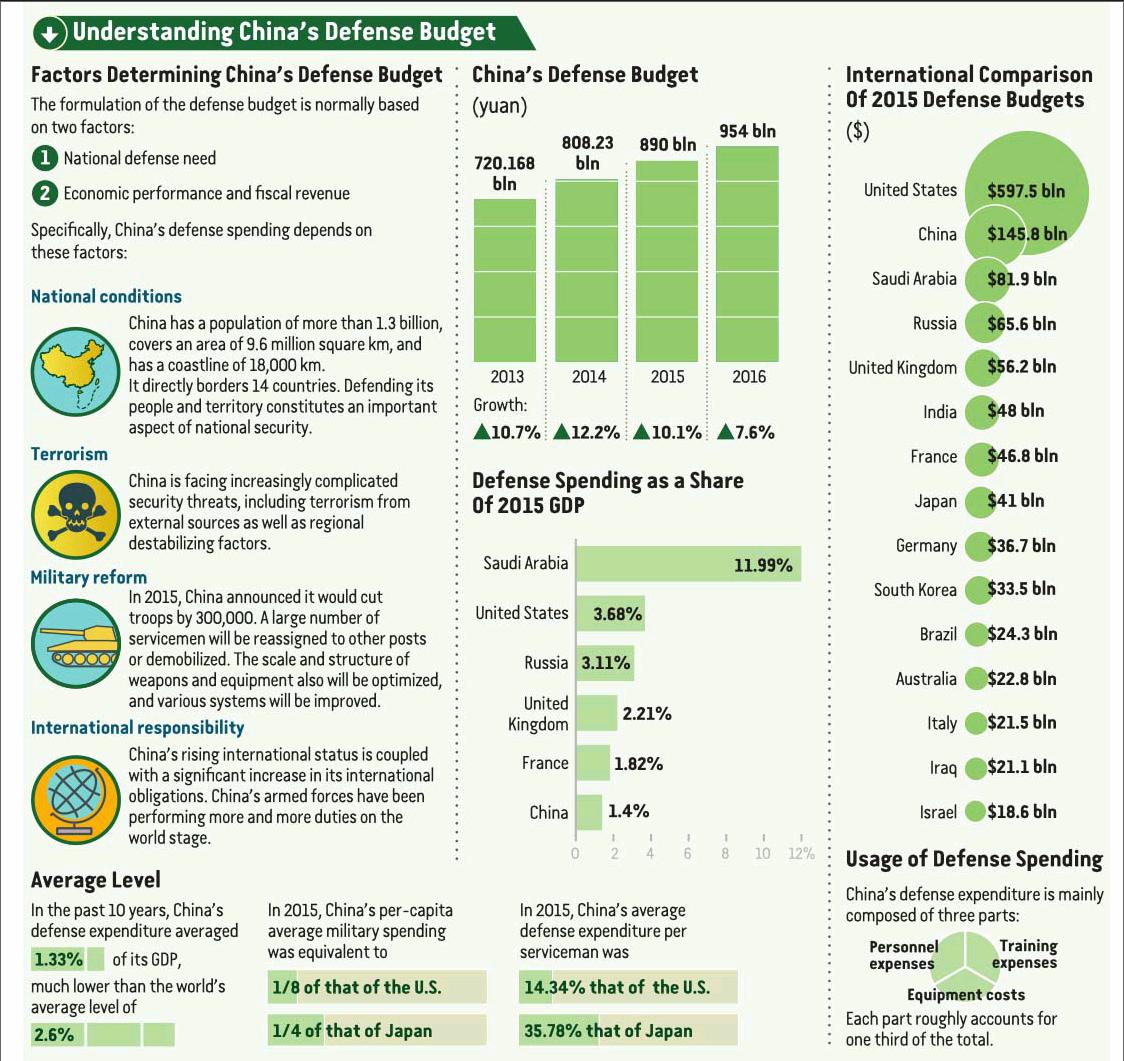A Budget for Peace
By+Lan+Xinzhen


The defense budget will grow at a rate of 7.6 percent in 2016, the lowest in six years, according to a budget report given to the Fourth Session of the 12th National Peoples Congress, Chinas top legislature, on March 5. This year, the budget is 954 billion yuan ($146 billion), compared with last years budget of 886.9 billion yuan ($136 billion).
Chinas national defense policy and military reform have recently been in the international medias spotlight as they have maintained a watchful eye on its military expenditures.
Foreign media outlets began predicting Chinas defense budget for 2016 as early as last October. Some, in light of the situation in the South China Sea, reckoned that expenditures would rise more than 12 percent in 2016.
Chinas defense policy is defensive in nature, and the country has stuck to the principle of peaceful development.
In essence, Chinas defense spending has grown in tandem with the projected performance of the economy. China has set its GDP growth target for 2016 at between 6.5 and 7 percent, in contrast to the average annual increase of 7.8 percent observed in 2011-15.
However, Chinas defense department needs additional funds to meet its various needs. It still lags behind major countries in terms of weaponry, training and payment to its servicemen. The department is in constant need of cash to continue modernizing.
Moreover, China still faces numerous potential threats. In the East China Sea, for example, disputes between China and Japan over the Diaoyu Islands could digress into further conflict. The prominent rise of Japans right-wing movement has also compelled Chinese troops to enforce vigilance against possible aggression.
In the South China Sea, Chinese armed forces need to demonstrate that it is capable of protecting its territory as U.S. warships and planes have repeatedly intruded on waters and airspace adjacent to Chinas Nansha Islands.
China also has its hands full under mounting pressure from North Koreas nuclear program, as Beijing works toward detente.
In addition, as China has invested in and is trading with many countries and regions around the world, its armed forces have shouldered an increasing amount of responsibilities in order to secure the countrys overseas interests.
Based on those potential threats, Chinas armed forces need more money to update their equipment, strengthen training and deter invasions.
China is currently pushing forward military reform. It has begun downsizing its army by cutting 300,000 servicemen, of which a large proportion are officers. These people will then be assigned to other posts or demobilized—which would also cost money.
This year, Chinas defense spending has grown at a rate lower than that in any of the past five years because the country has more pressing needs to meet. For instance, it is bent on lifting the poor people within its borders out of poverty and enabling everyone to share the fruits of the countrys development.
China is also accelerating the construction of the Silk Road Economic Belt and the 21stCentury Maritime Silk Road to promote the codevelopment of the countries lying along the routes. Pushing forward social and economic development and improving peoples living standards is much more important to the Chinese Government than increasing its defense spending.
Even so, some people may say that Chinas defense spending is not transparent, and there might be off-budget expenditures.
That is groundless speculation. In China, any expenditure related to defense, whether it is on personnel, armament or infrastructure, is included in the budget.
Such ideas may stem from differences in other countries systems. Take, for example, medical insurance premiums for veterans, which are allocated as part of defense spending in China but not in the United States. Also, while the United States has the worlds largest arsenal of nuclear weapons, its costs are spread between the budgets of its de- partments of defense and energy.
Chinas defense spending is still low in relation to those of other major countries, regardless of how it is measured—either in terms of percentage of total GDP or percapita level. In particular, the share of its military expenditure in GDP is only around 1.5 percent, the lowest among the UN Security Councils permanent members.
The composition and trend of Chinas defense spending over time shows that Chinas armed forces are purely meant for defense, and that China is a peace-loving country.

